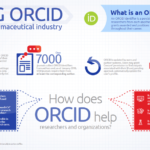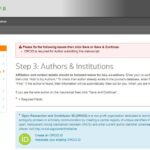This week, we are delighted to announce the opening of registrations for the Open Pharma Satellite Symposium at ALPSP 2022. We also hear about the launch of an initiative to enhance preprints through publication of peer reviews and the unveiling of the ISMPP Authorship Algorithm Tool. We read about how open access implementation has changed over the years and about the utilization of DOIs for books. Finally, we examine an article about the importance of reviewing statistics during publication, we hear the main takeaways from the State of Open Data 2021 survey, and we learn about how patient experience and patient engagement is crucial within contemporary healthcare research.
To engage with:
Open Pharma Satellite Symposium at ALPSP 2022 via Open Pharma
We are excited to announce that registrations are open for the Open Pharma Satellite Symposium: Who can we trust? Open science and pharma research. The symposium will be at 10:00–12:30 BST on 14 September 2022 at the Mercure Manchester Piccadilly Hotel in Manchester, UK, just before the Association of Learned and Professional Society Publishers (ALPSP) Annual Conference and Awards 2022. Join us for a live discussion about openness and trust in the communication of pharma-sponsored research, with a particular focus on open access and accessible summaries of published articles. The symposium is free to attend, but there are only 40 places available. Check the programme and register here to secure your place!
Publishing peer reviews alongside preprints via ASAPbio
Preprints are versions of research literature that have yet to undergo formal peer review and, as such, lack the checks and balances that occur during the rigorous peer-review process. To combat some of the misgivings that the research community has about preprints, ASAPbio has launched an initiative to encourage peer reviewers to publish their reviews alongside preprints. The ‘Publish Your Reviews’ initiative aims to provide readers with greater context regarding the strengths and weaknesses of a preprint, as well as promote greater transparency in the peer-review process. You can sign up to the Publish Your Reviews pledge here and read more about the initiative in the post below.
To read:
Discussing the Publish Your Reviews initiative via The London School of Economics and Political Science | 8-minute read
This blog post discusses why the Publish Your Reviews initiative is needed in research dissemination – for openness, speed and context. Written by Ludo Waltman, a Professor of Quantitative Science Studies at Leiden University, and Jessica Polka, Executive Director of ASAPbio, the post argues that there is a need for greater contextualization around published articles, especially preprints, and the Publish Your Reviews initiative can help provide such context. The authors examine how the initiative will work and detail some of the preprint platforms that have signed up (such as PREreview, Qeios and ScienceOpen). They also discuss how they hope the culture around preprints and peer-review publishing will change, as well as future initiatives that aim to improve scientific publishing.
Launch of the ISMPP Authorship Algorithm Tool via ISMPP | 2-minute read
Making sure that authors receive valid and sufficient accreditation for their research contributions can be tricky. To determine substantial author contributions to a publication more accurately, the International Society for Medical Publication Professionals (ISMPP) has launched the Authorship Algorithm Tool. This web-based tool provides a scoring system based on several criteria, such as research idea, methodology and statistical analysis, as well as data acquisition, analysis and interpretation. The tool was developed on the basis of the ISMPP recommendations that were recently published in Current Medical Research and Opinion.
The changing face of open access implementation via PLOS ONE | 30-minute read
The ways and implementation of open access publishing have changed over the years. This article, published in PLOS ONE, aimed to understand the transforming nature of how open access has been implemented over the past 5 years. The study found that implementation of open access via academic social networks (such as ResearchGate) was the most common mode and that this method has persisted throughout the years. Promisingly, the study also found that there has been an increase in the proportion of work published via gold open access, and that ongoing agreements within the community could help to continue this positive trend.
DOIs for books – why should we be DOIng it? via ScienceOpen | 6-minute read
Digital object identifiers (DOIs) are unique and persistent codes assigned to a specific research article, document or any other digital content in order to make them readily identifiable, accessible and linkable. However, most book publishers do not make use of DOIs, instead preferring the ISBN system, and consequently miss out on the advantages. However, in an increasingly digital world, there is an argument that book publishers need to increase their usage of DOIs and digital metadata. In this article by ScienceOpen, the authors discuss how ScienceOpen utilizes book DOIs and how it aims to enhance the prevalence of digital metadata for book publications via BookMetaHub.
The significance of appropriate statistics via Current Medical Research and Opinion | 6-minute read
The current standard of statistical reporting in published research has been described as poor and has been shown to be declining. Therefore, this article by Michal Ordak, from the Medical University of Warsaw, argues that statistics experts should be involved during the peer-review process to ensure that valid and accurate statistical analyses are conducted. The article, published in Current Medical Research and Opinion, outlines several recommendations that could be implemented to address the current problem with statistical reporting.
The main messages of the State of Open Data 2021 survey via figshare | 4-minute read
At SciDataCon 2022, Mark Hahnel – CEO of figshare – led a panel discussion on the takeaway messages of the latest State of Open Data 2021 survey. The panel made the following three conclusions: 1) funders should be the most responsible for implementing change in data-sharing policies, 2) the challenge with data sharing is quality not quantity and 3) there are systemic data-sharing problems to overcome. The slides from all panel presenters are available here. The State of Open Data 2022 survey is open until 18 July 2022.
Patient experience as a critical outcome and impact of healthcare research via PFMD | 4-minute read
Patient engagement and the patient experience have emerged as integral factors in effective contemporary healthcare research. Understanding the patient experience within research can help to understand patients’ needs and desired outcomes, and increased patient engagement has been shown to improve trial recruitment, retention and impact. To help researchers more effectively utilize patient engagement and understand the patient experience, Patient Focused Medicines Development (PFMD) – as part of their Patient Engagement Management Suite – have developed the Global Patient Experience Data Navigator. This toolkit is free and can be downloaded here.
Have you seen our recent commentary about user perspectives on plain language summaries? Read it here in Current Medical Research and Opinion.






